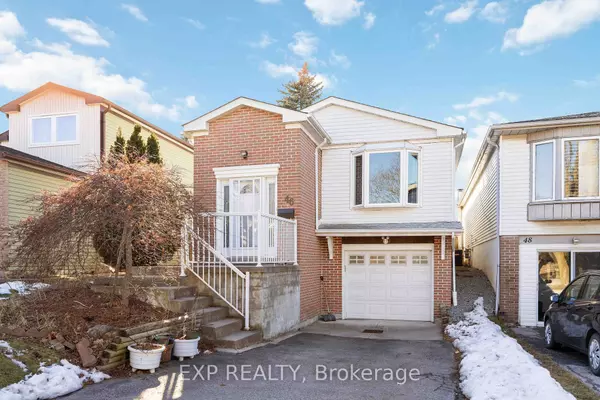Real Estate Investment
What is Real Estate?
Real Estate refers to any physical property–Land, residential/commercial buildings, underground rights below land and air rights above land. Investment in real estate is done to meet the needs of a buyer or company. Real estate properties and investment play a significant role in the success of an economy. This may also refer to the process of buying and selling a property.
Determinants of Real Estate Value
There are various factors that either drive up a property’s value or bring it down. Real estate markets attract investors based on its size and scale. For most, the factors influencing the value of real estate and the success of a real estate’s market are the following:
Demographics
Demographics refers to the specific figures and details indicating the framework of a community. These include population count, density, age, race, gender and population growth. Changes in demographics of a society largely affects the real estate market as this determines the type of properties that are in demand. As an example, neighbourhoods and areas that are known tourist spots drive up demand for vacation rentals and Airbnb properties as many tourists are likely to prefer staying in those instead of hotels.
Interest Rate
Similar to any other investment, interest rate affects the value of real estate properties. Mortgage loans have either fixed or adjustable rates. Interest rates are increased to try and slow down inflation. This makes it harder for home-buyers to get loans to purchase their property. Interest rates affect capital flow and supply and demand.
Condition
For residential and commercial properties, the physical build and structure determines how much it is worth. Investors often flip houses to drive up its values as it not only makes the house more attractive to look at but more livable. Cosmetic fixes such as painting and carpets contribute to the livability of the property create more potential for the property
Local Market
The two types of market are known as the Seller’s and Buyer’s market. A seller’s market is when there are more buyers and fewer homes in the area and a buyer’s market is when there are more homes and fewer buyers. A buyer’s market allows more room for negotiation. A seller’s market tend to sell homes faster as sellers make adjustments to meet buyers' needs.
Profit from Appreciation
There are several ways you can make profit from real estate. As time goes on, real estate value changes. Appreciation of properties occurs depending on many factors. Whether it’s the location of the property, development or the kinds of fixes and renovations, real estate value varies everywhere you go. Inflation and demand also plays a role in increasing/decreasing the value of a property. With that being said, let’s discuss how different types of properties experience appreciation.
Land Property
Lands that are located outside of improving communities are likely to gain interest from developers thereby increasing their value. Land properties receive higher value as well when certain minerals and natural resources are found on it—more so when you strike oil but this may also include gravel deposits and trees.
Residential Property
The value of residential properties depend on the neighbourhood it is located in. Factors such as addition of schools, transit stations, shopping centres and public parks and playgrounds all play a part in increasing and decreasing value residential properties. These indicate the expansion of the neighbourhood. Neighbourhoods experiencing urban decay are more likely to drive down the real estate market.
Commercial properties
Commercial properties gain value similar to how residential and land properties do. These types of properties include retail buildings, offices, warehouses, and apartment complexes.
Earning from Income/Rent
Raw Land
Raw land properties earn income from companies when there is a discovery of natural resources and minerals on it. These companies would pay a legally-binding payment also known as Royalties for these discoveries. Put simply, Royalties are agreements made with owners that give a third party rights to use their assets. Raw lands can also be rented for agricultural purposes and production.
Residential
Residential properties earn income from the most common form of rent. Rent is the amount tenants pay consecutively in order to keep living in a property, whether it is an apartment, townhouse, single-family or multi-family home. Inflation and demand are factors that may affect the cost of rent. A rental property that is in a desirable area will increase chances of getting a tenant in your property.
Commercial
Commercial properties earn profit from basic forms of rent. The good thing about commercial real estate is you can usually receive an annual return between 6% and 12% depending on certain factors such as economic health.
Airbnb/Vacation Rentals
Properties may also earn income as an Airbnb or Vacation Rentals. These are residential types of properties that are home-away-from-home rentals. Airbnbs are usually preferred by travellers over hotels. Vacation rentals produce good income in areas that are well-known and are considered as tourist spots. Having vacation rentals are banned in some cities so be sure to check out bylaws in your city first.
How Can You Maximise Profit from Your Property?
Multi-zone Property
Commercial properties have more chances of earning profit if it has more uses. To make sure that you are making the most out of your money in commercial properties, make sure to analyse zoning restrictions before purchase.
Rental
Pick Your Tenants
If your property is in high demand for tenants, you may find a number of applications from various people that want to move in. Make sure to do background research or conduct proper screening of tenants to ensure your safety and safety of your home. It would be difficult to earn profit from tenants who are not up to date with payments or who cause damage to your property. Not only will it be a waste of money but time as well.
Maintain Rental Property
There is a chance that tenants will fail to perform routine maintenance on your property thus creating a bigger problem for you. Keeping your property up to date with maintenance and fixes will make sure your renters do not make any fixes on their own that may not be up to your standard or liking.
Minimise Vacancy
Anytime your property is vacant, there is no profit from income that is coming in. The best way to avoid vacancy is to find long-term tenants that have good background and pay on time.
Categories
Recent Posts











